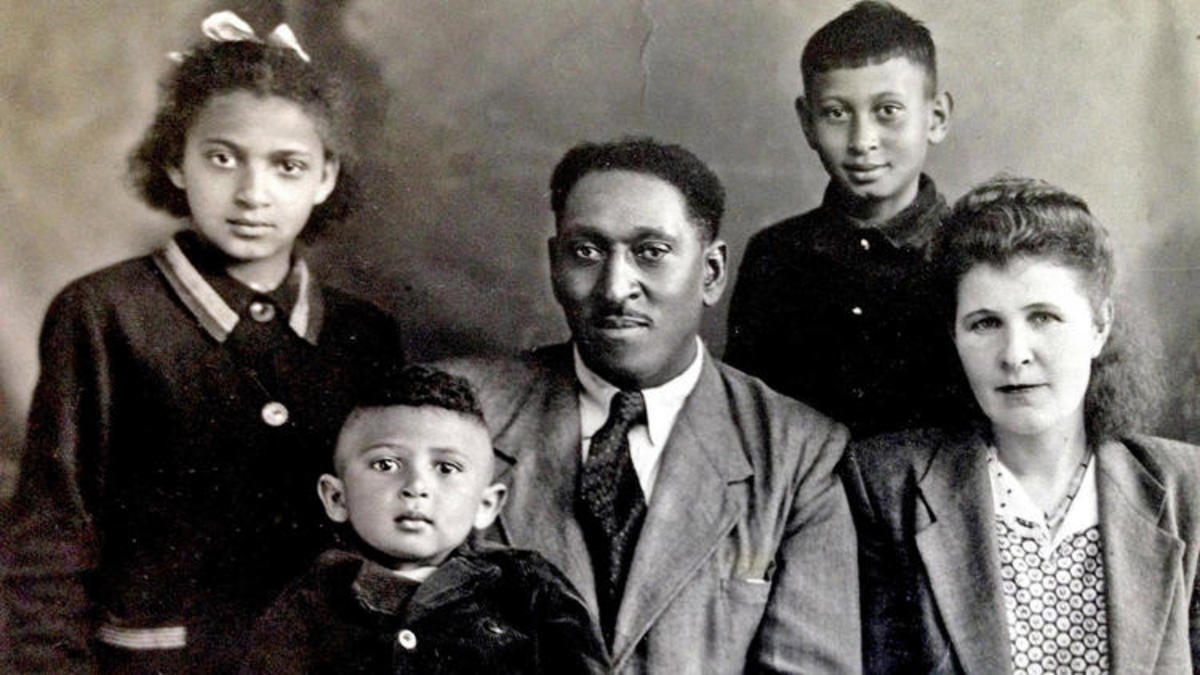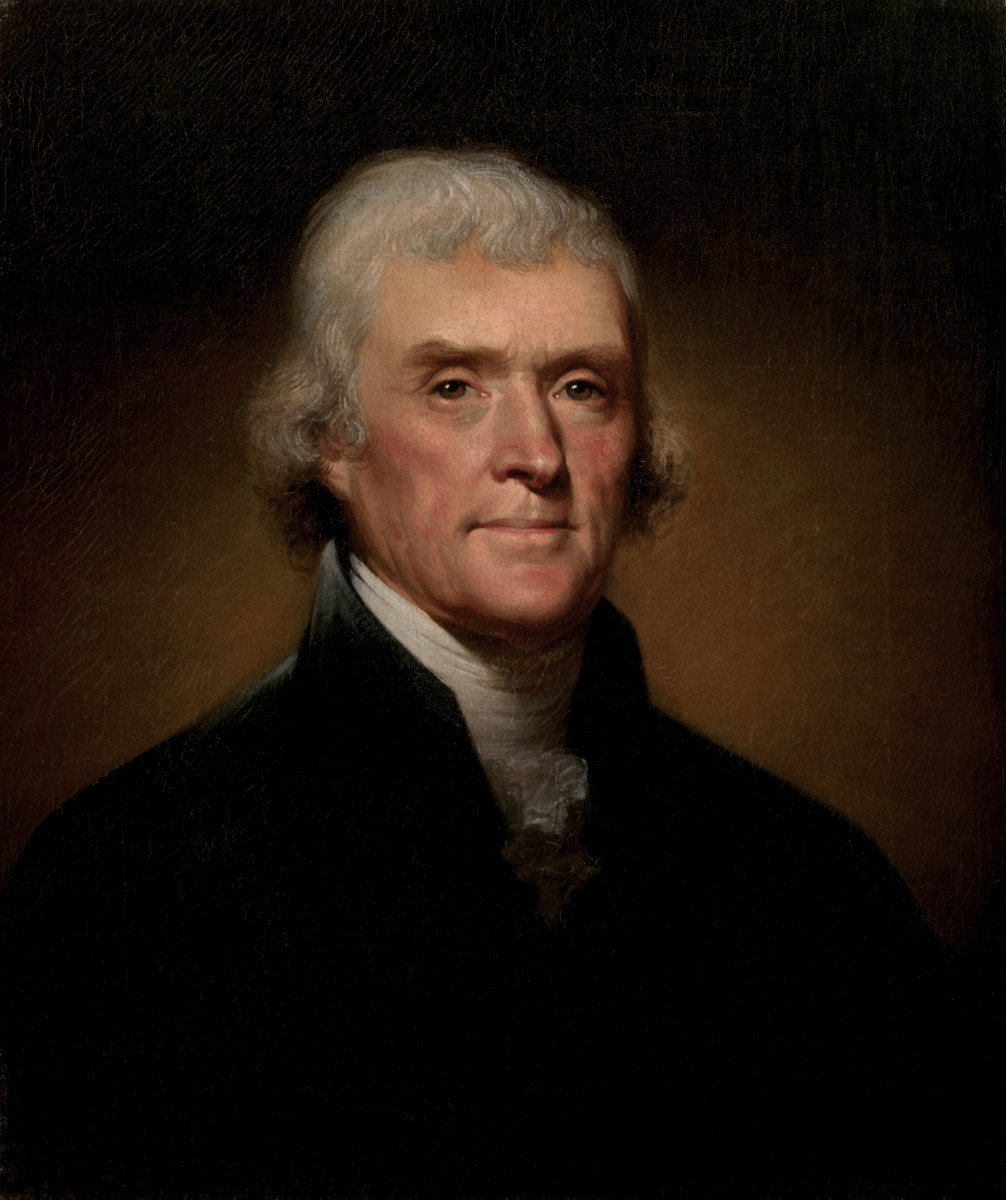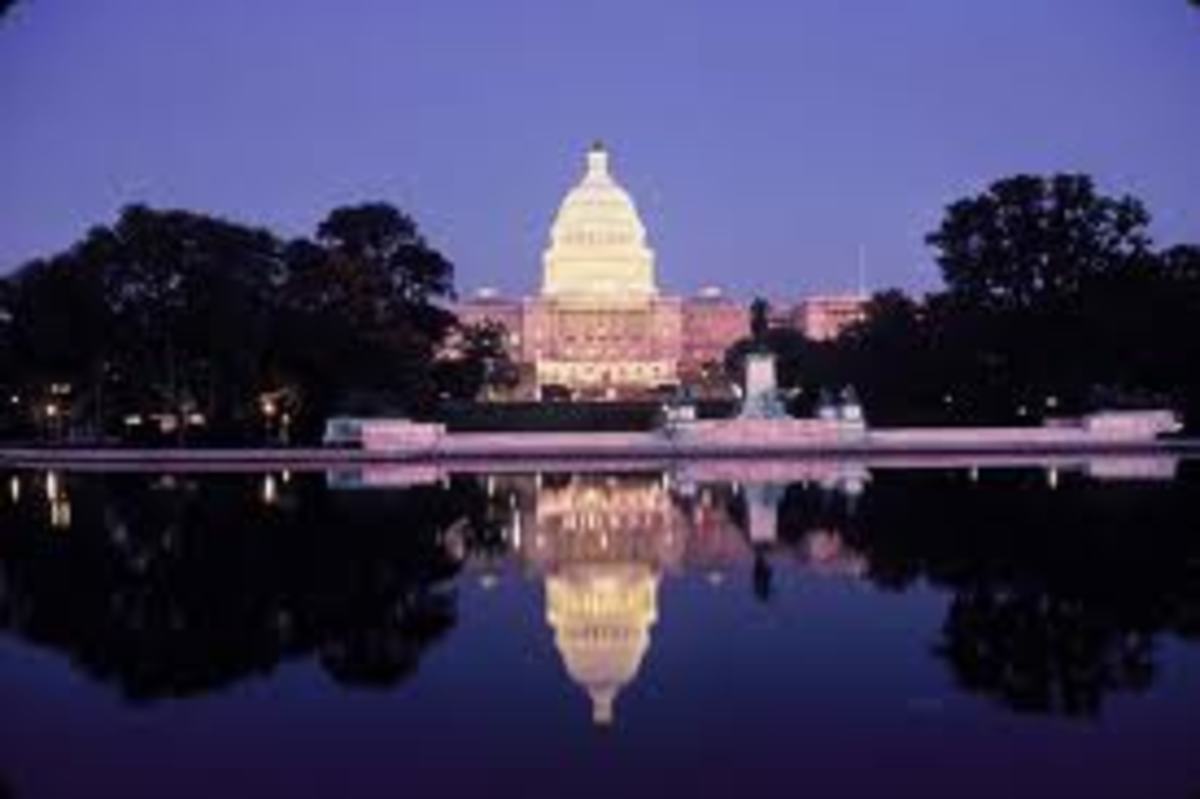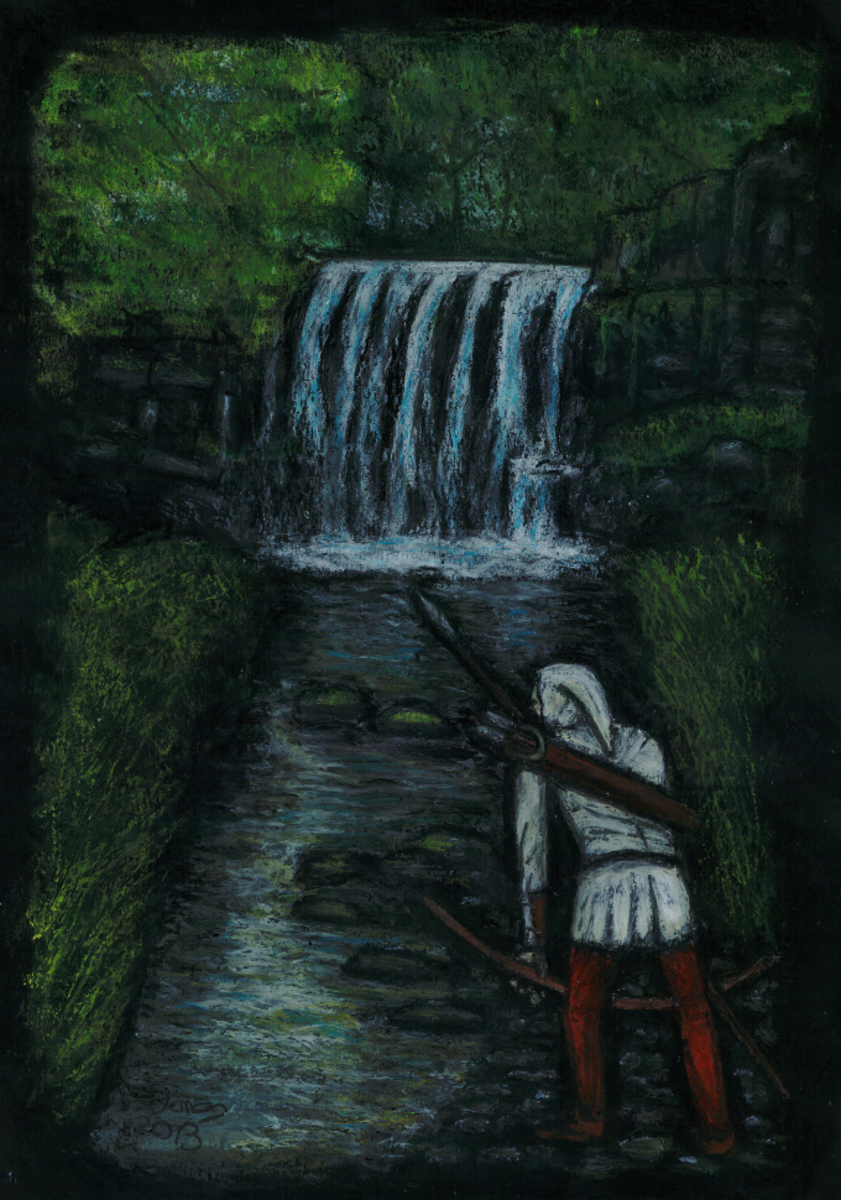Muslim Culture in America, A Sociology Essay
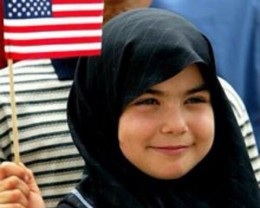
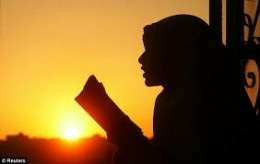

Abstract
Islam is the fastest growing religion is the United States, and is also the fastest religion to get discriminated against. This is an important topic to research since many United States citizens are being portrayed as “terrorists”, just for practicing their religion. Additionally, by recognizing and pointing out racism and cultural bigotry, our nation can make steps to prevent injustice against our own citizens. This core assessment will evaluate this culture, research Muslim history, identity, and current and past discrimination.
What do most people think about when they hear the word Muslim? Some people think of a devoted follower, or even a religious person that helps the community. Unfortunately, some individuals might think negatively and ponder words like terrorist, radical or murderer. Despite all the negative publicity that Muslims and Islam have gone through recently; they still have a rich history and a wonderful culture. This core assessment will evaluate this culture, research Muslim history, identity, and current and past discrimination.
Recently, Muslims have been under attack in America, and in their “homeland”. They have been called “terrorist”, “foreigner”, and even “murderer”; they have been hated because of their radical counterparts. Little do many know, Muslims have been in America for many years! Everyone knows that “in 1492 Christopher Columbus sailed the ocean blue”, thinking that he was the first person to discover the “New World”. When in fact, other discoverers like the Muslims arrived here in 1178 (Dawanet, 2006) This voyage was recorded in a publication known as the “Sung Document” (2006). The Muslims were so acquainted with the New World, that even Columbus used Muslim Portuguese sailors to help navigate his precious three ships (Ahari, 2005).
There was a large gap in reference to Muslim history in America; they resurfaced in the 1800's in the form of slaves. Interestingly, “at least ten percent of the African slaves came from Muslim backgrounds” (Siddiqu, 2006). Additionally, these slaves were not just different because of their Muslim background, they were “special” because they had a high percentage of literacy (2006). This was a positive and a negative thing; they were punished for their intelligence through physical means, but they were able to keep their heritage strong through literary works (2006). Small African American Muslim communities survived throughout the United States, handing down precious traditions to their kin, who also did the same.
During the next century, Muslims have a difficult situation a head of them: they could either stay in their economically devastated homeland which included: Palestine, Lebanon, and Pakistan,or they could come to the United States and live in bad neighborhoods, work bad jobs, and put up with racism. Many chose the latter, working in the automobile industry, most notably Detroit, Michigan (2006). Some, who were from Panjab, found refuge in Sacarmento, working in comparable jobs.
The 1950s were a better time for Muslim-Americans. Many Muslims from their homelands received professional degrees such as medical and law degrees (2006). After they earned their education, they moved from the “motherland” to the United States, in the mist of ethnic riots, and the racial revolution. These professionals, migrated to the Muslim communities which was predominantly located in: “Detroit, Ann Arbor, Gary (Indiana), Cedar Rapids (Iowa), Sacramento” (2006). This surge of immigrants sounded off an alarm with the dominant ethnic group, despite their educational background, (which were, the White Anglo-Saxon Protestants).
During the time of the Black Panthers, Ku-Klux-Klan, and other racially motivated associations, arrived the Muslim Student Association of the United States and Canada (MSA), who were later re-named the Islamic Society of North America (ISNA) (2006). This, and other comparable associations helped Muslims who never practiced their religion, to get in touch with their “roots” (2006).
These associations were notorious for holding many positive conferences, which encouraged people from all over the globe to come to America, and add to our nation's melting-pot.
Islam is not solely for people of Middle-Eastern descent. During the Martin Luther King, and Malcom-X era, came the “black movement”. The black movement was lead by “prophet” Elijah Muhammad. Elijah Muhammad was a “self-proclaimed” prophet; as in, he first initiated that he was sent from God, or Allah. But this “Black Muslim” movement did not last long because of Elijah Muhammad had sexual skeleton's in his closet.
Fortunately, Islam and the Muslim culture did not die out after the “black movement”, but has flourished in recent times, and is actually one of the fastest growing religion in the United States. Currently, there are around 5 to 8 million Muslims in the United States, and is growing around 135,000 annually (Siddiqui, 2006).
There are currently 1,209 official Mosques in the United States; half of them have been built in the past twenty-years (Muslim World, 2002). Recently, the dominant group's response to the Muslim culture and the Islamic religion is not favorable. Even though one in ten Muslims in America have a doctorate, and 67% or higher (while only 44% of American-born citizens) have a doctorate degree, they are treated as peasants (Allied Medical Corporation, 2005).
The rates of discrimination have been increasing, “There is an almost 30 percent increase in the number of anti-Muslim bias incidents from 2004 to 2005, the annual report by a leading civil rights group said. The Council on American-Islamic Relations' (CAIR) report - the only annual study of its kind - outlines 1,972 incidents and experiences of anti-Muslim violence, discrimination and harassment in 2005, the highest number of civil rights cases ever recorded in the group's annual report” (Ghazali, 2006).
Muslims have been on constant guard in America, especially after 9/11. At airports, bus stations, train stations, and any other public event, they are stared at, booed at, and looked at with suspicion, especially if they are carrying a backpack or handbag. “For Muslims, Bush Administration’s “global war on terror” has become euphemism for racial profiling at airports and borders, monitoring of mosques, closing down of charities, FBI moles in their community, sting operations, high profile arrests on terrorism charges which are seldom proved in a court of law, and discrimination and harassment by law enforcement” (2006). This is an unfortunate time for Muslims. There was a point in the United States' history that we profiled and judged amongst our citizens without fair trial, it was called the Salem witch-hunts. Muslims are proud people; they have a rich heritage and a strong sense of identity.
A Muslim is defined as, “Of or pertaining to the religion, law, or civilization of Islam” (Dicitonary.com, 2006). Most Muslims would characterize themselves, as “submitters”, submitting to the teachings of the Koran and of Allah (Cline, 2006). They believe that their soul depends upon their submission to the Koran, and if not followed very adherently, their soul faces a possible consequence of hell. Additionally, Muslims believe in being around other Muslims. They actually have a word for this community; it is called “Ummah” (2006).
Another characteristic that Muslims have is a sense of purity. This purity gives their culture meaning; they forbade themselves alcohol, drugs, gambling and pork (2006). One commonality that all (good) Muslims follow is the seven principles, which are:
1. Tawheed- Muslims believe in the unity of God.
2. Risallah- Muslims believe that Muhammad was the messenger of God
3. Mala'ikah- Muslims believe in angels.
4. Kutuballah- Muslims believe in God's books. These books are the Psalms of David, and the Koran.
5. Yawmuddin- Muslims believe in Judgment Day.
6. Al-Qadr - Acceptance of pre-destination.
7. Akhriah- Muslims believe that the dead will resurrect one day.
Mainstream may give Muslims a different sense of identity, characteristics that many Muslims adhere to, and believe. For instance, mainstream may say that Muslims can be easily identified with their turban. This is a sense of identity for Muslims, but not alone. Originally, turbans were used as a cloth that covered their body once they died (Wikipedia, 2006).
Now, turbans have a wide variety of uses, including: indicating social status, fending off dessert heat, and protecting the scalp from sunburn (2006). This paper will cover stereotypes later. Another characteristic that mainstream gives Muslims, that they are all terrorists, related to a terrorist, or someway connected to terrorists. Driving down a city road and seeing a mosque, can give a person a sinking feeling in their stomach.
Many Muslims have, and are trying to fit in to the American culture; it has not been easy. Muslims are inflicted with so much discrimination, it is almost impossible for them to truly assimilate, “many Muslim community representatives say assimilation has become more difficult as Islamic extremism has risen to have an impact on the West. And they add that addressing the isolation and fanaticism that can feed homegrown extremism has to be the work of both the Islamic community and the broader society” (Lafranchi, 2005).
However, more and more Muslims are becoming assimilated, even if they are not becoming aware of it. It is even estimated that one in three Muslims hold a professional job; for example, Wall Street Journal brokers, doctors, lawyers, and make over $75,000 a year (Wikipedia, 2006).
Discrimination is not however the only thing stopping their attempts of assimilation. There are many Muslims who are worried about their two choices: assimilation or isolation (Media Guide to Islam, 2003). They feel guilty over wanting things that American life offers; such as civil liberties, right for education, their children's safety, their spouse's equality, freedom of speech, and freedom to worship how they choose.
However, they worry about the evils of American society, how America feeds off of sex, drugs, alcohol, and other “evils”. They are worried about their souls, and the souls of their children. They do not want their children to be seduced into American living, and possibly abandoning their beloved faith. The next way that American-Muslims have “carved their nice into American society” is isolation.
Discrimination is not however the only thing stopping their attempts of assimilation. There are many Muslims who are worried about their two choices: assimilation verse isolation (2003). By forming small communities around the United States, Muslims (as well as many other groups who have strong religious beliefs (i.e. Mormons, Amish, and so on) protect themselves against discrimination. They also give themselves other comforts, such as employing “Their own”, schooling “Their own”, and marrying “Their own”. They get all the rights of being an American, but they get all the values of home.
However, there are some issues in America that is against their religion, like abortion, marriage, divorce, inheritance, child custody, child support, and alimony (Haddad, 1997). Also, when they live in these tight-knit communities, they understand certain ideologies and requirements that come with being a Muslim, such as fasting during Ramadan. Additionally, Muslims are required to pray so many times a day, as well as attending Friday mid-day services (Haddad, 1997).
Muslims have special holidays, which do not necessarily coincide with the traditional Christian or Jewish holidays. An employer many not award breaks for all theses prayers, fasting, special holidays, and mid-day services. Furthermore, by Muslims forming these small communities, they do not have to worry about their children marrying “outsiders”. Interestingly, some Muslim communities have actually imported potential spouses for their children (Haddad, 1997).
The dominant group (White Anglo Saxon Protestant) response to American Muslims has not been pleasant. Fear and ignorance has made many Americans prejudice towards ”Hadjis”. “Some types of persecution toward Muslims has been unwarranted arrest, imprisonment, beating, torture, or even execution” (Wikipedia,2006). Discrimination and persecution comes in many forms, whether it is not going into a store because it is owned by someone that “looks” Muslim, or flat out instigating violence against them. The dominant groups view. Of American Muslims is a very sad one.
Stereotypes are a problem that every culture faces; the Muslim culture faces many themselves. Some people believe that every Muslim is part of a “holy war”, but that is far from true. A pamphlet for the media published by the American Muslim Council explains “ the word “jihad” is more accurately translated as an “exertion of effort”, not a holy war (Harvard College, 2006). This sort of stereotyping has been compared to Muslims for hundreds of years, with majorities of the information being incorrect. “ In the wake of the Oklahoma City bombing in 1995, there were claims that people of “middle eastern descent” running away from the building” (2006). “Many “experts” stated that it was “Islam Extremists”, and before the dust even settled there were over 200 attacks on Muslim homes and mosques”(2006). When in reality, it was two Caucasian men that were not Muslim, or even Middle Eastern.
It is ignorance and hate that fuels many of the rumors. Every religion has had moments that would not be considered “fantastic”. The media focuses on the bad parts of the Muslim culture, not the good. “A common opinion about Muslims is that people think that a Muslim terrorists comes from poverty, broken families, ignorance, immaturity, lack of family or occupational responsibilities, weak minds susceptible to brainwashing - the sociopath, the criminals, the religious fanatic, or, in this country, some believe they’re just plain evil people” (2005).
Shockingly, Marc Sageman, a former CIA case officer in Afghanistan, says that most of the worlds known terrorist were not from bad homes, but are very well educated (almost 90 percent) (2005).
Some other stereotypes are: all Muslims are Arabs, they all live in the hot desert they are camel jockeys, they still use the sword, every Arab/Muslim has an oil well, they are filthy rich, they strongly “appreciate” feminine beauty, they “collect” women in a harem, and most famously, they are terrorists who “hate us”.
On the other end of the stereotype is the Muslims view on Americans. In an article written by Ken Hughes, he wrote about comments he heard about how Muslim people think about Americans. The first thing he mentioned was Israel, “Your government for mysterious reasons supports a terrorist regime Israel, have you ever wondered it might have bad consequences?” (Hughes, 2005). With statements like that, it is no wonder why propaganda videos and foreign news displays America as an advocates to terrorism. They also question our culture and the way we treat females in our nation. “Islam respects women more than any other society in the world, letting women be treated like objects by filthy perverted men is not what you call a civilized society” (Hughes, 2005).
Being Muslim in today’s society can be very difficult and have some disadvantages. Muslim people in American are treated with many acts of discrimination and racism. The President of the United States even made an Anti-Islamic claim stating “The recent arrests that our fellow citizens are now learning about are a stark reminder that this nation is at war with Islamic fascists who will use any means to destroy those of us who love freedom, to hurt our nation”(The White House, 2006). The attitude toward people of Middle Eastern decent is very poor; especially since there is the stereotype that all people from the Middle East are Muslim.
Following the events of September 11th, the amount of discrimination and racism has gone up. “In 2002, in the best interests of ‘national security,’ immigration authorities ordered young men from predominantly Muslim countries to "voluntarily" present themselves to be questioned, fingerprinted, photographed and assigned a registration number. More than 14,000 of the 83,000 men who complied with the order were deported, forced to leave their families behind--most for minor immigration violations--all without generating a single charge of terrorism” (Smith, 2004).
People in America have a moderately distorted view of Muslims, and people with Middle Eastern descent. Some Americans ask “Why do Muslims hate Americans.”, or “What did we do?”, in response to poor relations post September 11th. “The truth is that at present the Muslims severely loathe America and now, they hate not only its policymakers but large portions of the American people since they have shown without a shadow of doubt that they agree with their discrimination be re-electing our current President,.”(Al-Faisal, 2005). It is this kind of discrimination that makes the abuse and racism toward Muslims an easy task.
As was previously said, there are many types of discrimination that Muslims face here in America. Weather it is boycotting, assault, or just being treated unfairly there is a very definitive amount of prejudice and discrimination directed toward Muslims, even if it is unintentional.
Even with all the discrimination that goes on in America, many Muslims are advancing in American society.
Many people who are immigrating from the Middle East to the United States are educated and are ready to work. Unfortunately, sometimes being educated and motivated is not enough. There are many “societies” that have been established to better help make more progress for the people of Islam.

